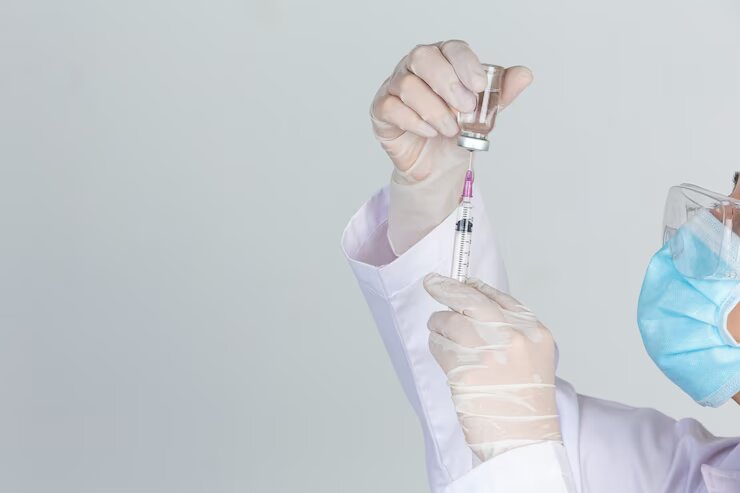- 20 March 2023
- 37
Protecting Our Communities: How Vaccination Can Prevent Future Measles Outbreaks

Measles, a highly contagious disease that can cause severe health complications, has become a growing concern in recent years. In the US alone, there have been over 1,200 cases reported in just the first half of 2019. With such alarming numbers on the rise, it’s crucial to understand how we can protect our communities from future outbreaks. The answer? Vaccination. Join us as we explore why getting vaccinated is essential for not only your own health but also for those around you and how it could prevent potential measles epidemics from happening again.
What is Measles?
Measles is a serious, highly contagious disease caused by a virus. It begins with fever, runny nose, and cough, and then progresses to a rash that covers the entire body. Measles can cause severe health complications such as pneumonia and encephalitis (swelling of the brain), and can be fatal. The best way to protect against measles is to get vaccinated.
The measles vaccine is very effective at preventing the disease. In fact, if everyone who is eligible for the vaccine gets vaccinated, measles could be eliminated altogether. However, in recent years there have been several large outbreaks of measles in communities where vaccination rates are low. These outbreaks are a reminder of how important it is to vaccinate against this potentially deadly disease.
The Importance of Vaccination
Vaccination is one of the most important tools we have to prevent the spread of disease. Measles is a highly contagious virus that can cause serious health complications, including pneumonia, encephalitis (inflammation of the brain), and death. Outbreaks of measles are currently occurring in several communities around the country.
The best way to protect ourselves and our loved ones from measles is to get vaccinated. The measles vaccine is safe and effective, and it’s the best way to prevent the spread of this disease. Vaccination also protects those who are unable to receive the vaccine, such as infants and people with weakened immune systems.
If you have not been vaccinated against measles, or if you are unsure if you are up-to-date on your vaccinations, please talk to your healthcare provider today. Together, we can help keep our communities healthy and safe.
Herd Immunity
Herd immunity is a term used to describe the resistance of a population to the spread of an infectious disease. It occurs when a high percentage of individuals in a community are vaccinated against the disease, making it difficult for the disease to spread. This can protect those who are unable to be vaccinated, such as infants and people with weakened immune systems. Measles is a highly contagious virus that can cause severe illness, particularly in young children. An outbreak of measles can quickly spread through a community if there are not enough people vaccinated against the disease. By getting vaccinated, you not only protect yourself from measles, but you also help to prevent its spread.
The Measles Vaccine
The Measles Vaccine
The measles vaccine is a safe and effective way to help protect our communities from future measles outbreaks. The measles vaccine is given as a shot and is usually given to children at around 12 months of age. The measles vaccine is about 97% effective. This means that if someone is vaccinated and they are exposed to the measles virus, they have a 97% chance of not getting sick.
Scheduling Your Child’s Vaccinations
When it comes to protecting our children from deadly diseases, vaccination is one of the most important tools we have. Measles is a highly contagious virus that can cause serious health complications, including pneumonia, encephalitis (swelling of the brain), and death. The best way to protect your child from measles is to make sure they are up-to-date on their vaccinations.
The Centers for Disease Control and Prevention (CDC) recommends that all children get vaccinated against measles, mumps, rubella (MMR) at 12-15 months of age and again at 4-6 years of age. If your child has not yet been vaccinated, or if they are due for a booster shot, talk to your doctor or pediatrician about scheduling an appointment. Vaccinations are typically covered by insurance, so be sure to check with your provider beforehand.
In order to keep our communities safe and healthy, it is important that as many people as possible are vaccinated against measles. If you have any questions or concerns about the MMR vaccine, please talk to your doctor or contact your local public health department.
What to Expect After Vaccination
After you or your child receives a measles vaccination, you may experience some minor side effects. These can include soreness and redness at the injection site, fever, and mild flu-like symptoms. These side effects are normal and should go away within a few days. You or your child may also experience some more serious side effects, such as seizures or allergic reactions. If you experience any of these side effects, please contact your healthcare provider immediately.
Conclusion
Vaccination is an effective and safe way to protect our communities from measles outbreaks. By continuing to vaccinate our children, we can ensure that the current generations are protected, and that future generations are not threatened by this potentially deadly disease. We must also continue to work with healthcare providers, family members, schools and other organizations in order to keep our communities safe. Only then will we be able to live free of fear of contracting a potentially fatal virus like measles.

